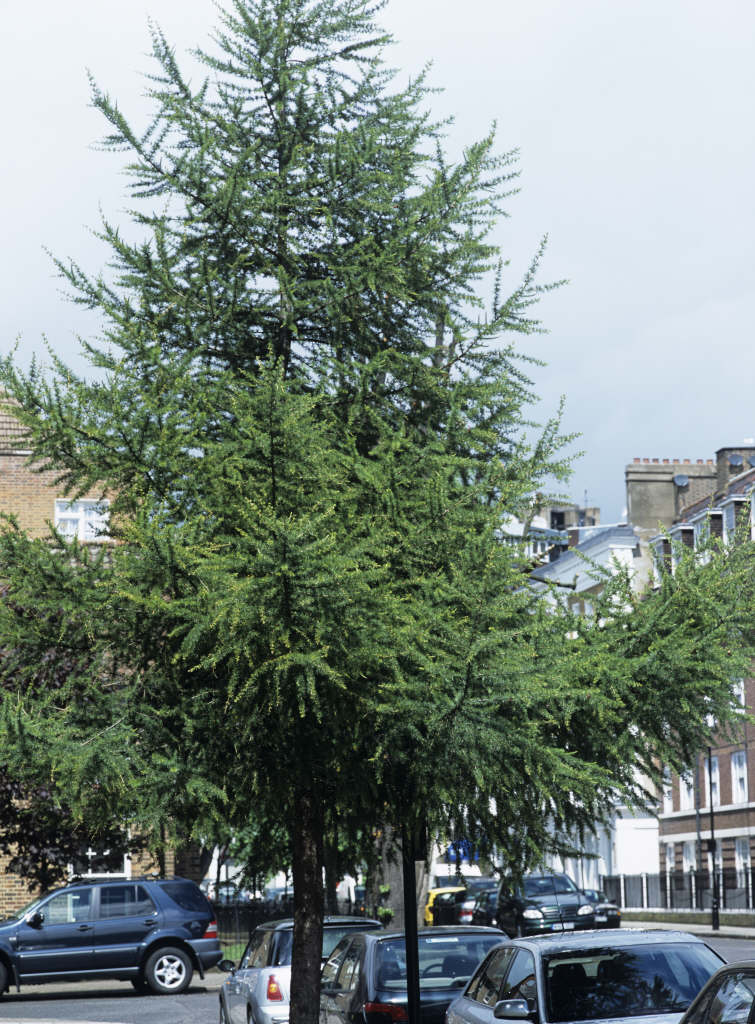Larix decidua
European larch
A deciduous conifer making a large conical tree, broadening with age, with cream young shoots bearing soft, light green needle-like leaves in whorls, turning yellow in autumn. Flowers small, cones to 4cm, erect

Buy this plant
Size
Ultimate height
Higher than 12 metresTime to ultimate height
more than 50 yearsUltimate spread
4–8 metresGrowing conditions
Moisture
Well–drainedpH
Acid, NeutralColour & scent
| Stem | Flower | Foliage | Fruit | |
| Spring | Pink | Green | ||
|---|---|---|---|---|
| Summer | Green | |||
| Autumn | Yellow | Brown | ||
| Winter |
Position
- Full sun
Aspect
South–facing or East–facing or North–facing or West–facing
Exposure
Exposed Hardiness
H7Botanical details
- Family
- Pinaceae
- Native to GB / Ireland
- No
- Foliage
- Deciduous
- Habit
- Bushy
- Genus
Larix are deciduous trees of conical habit, with good autumn colour from the soft, needle-like leaves which are borne in whorls on spur-like lateral shoots and spirally arranged on young growth; small ovoid cones persist on the branches
- Name status
Correct
- Plant range
- Alps, Carpathians
How to grow
Cultivation
Grow in any deep, well-drained soil in full sun
Propagation
Propagate by seed in containers in early spring, graft in winter, or root semi-ripe cuttings in summer under mist; cuttings are difficult to root
Suggested planting locations and garden types
- Coastal
- Architectural
- Low Maintenance
Pruning
No pruning required
Pests
May be susceptible to adelgids
Diseases
May be susceptible to honey fungus in gardens where it is present but insufficient data to determine degree of susceptibility
Get involved
The Royal Horticultural Society is the UK’s leading gardening charity. We aim to enrich everyone’s life through plants, and make the UK a greener and more beautiful place.